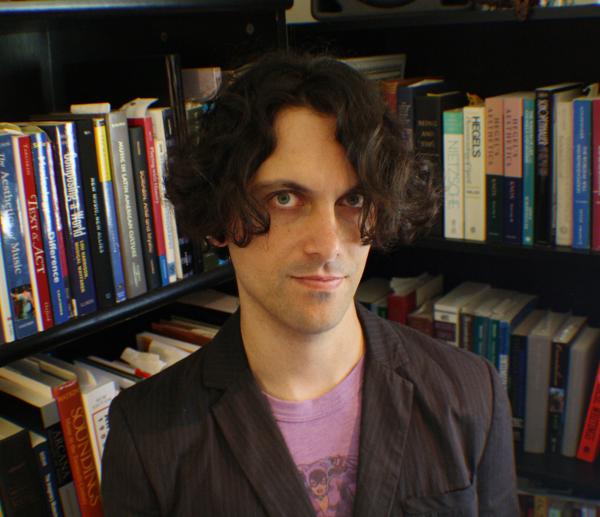Sociology - Other
Homework Help & Tutoring
We offer an array of different online Sociology - Other tutors, all of whom are advanced in their fields and highly qualified to instruct you.
Sociology - Other
Sociology of Sport
In an age when mass communication has brought the globalization of sporting images, values and organizational structures into the lives of people around the world, its impact as a social phenomenon has never been bigger. The field of sport sociology examines all aspects of how sports make a difference in society. It looks at how it both unites diverse groups within society, and increasingly divides us as societal stresses often invade the field of play.
Sociologists view sports through various prisms, including sport vs. play, men vs. women, active vs. passive, mass participation vs. high-level performance, and professional vs. amateur. They shed light on the connections between sport and its effect on mass media, advertising images, gender issues, civil rights, human performance and drug usage, social mobility, acceptance of violence, and state politics.
Among the early influences of sports sociology were the books Theory of the Leisure Class by Thorstein Veblen written in 1899, and Homo Ludens by Johan Hulzinga, written in 1938. Veblen’s work laid the groundwork to observe sports such as American football as socially and psychologically advantageous to community cohesion, but also to see it as a symbol of conspicuous leisure that wastes material resources. Verblen would probably argue that the millions of dollars that companies spend on sports advertising during the Super Bowl could be better spent on increasing salaries/benefits for their workers.
Homo Ludens brought to the fore the importance of the play element of culture and society. Hulzinga suggests that play is a necessary condition and primary to the generation of culture.
Modern sports sociology received a major boost in 1978 with the formation of the North American Society for the Sociology of Sport (https://nasss.org). The Society promotes, stimulates, and encourages the sociological study of play, games, sport, and contemporary physical culture. Further academic acceptance of the field occurred in 1984 with the creation of the Sociology of Sport Journal (https://journals.humankinetics.com/view/journals/ssj/ssj-overview.xml).
The growing television coverage of the Olympic Games in the late 20th century put sports and nationalism fully on display for millions of viewers around the world. Citizens who would normally not follow sports closely became emotionally engaged in the shared story about their nation’s prowess as it was tied into Gold Medal victories.
Sports and Gender Issues Within Society
Women’s sports gained greater popularity during the Olympic games, especially in the fields of skating, gymnastics, and track and field. This helped narrow the gender gap in certain sports, and made it more acceptable for people throughout society to encourage women to go into athletics.
In the pre-modern era, most societies encouraged only boys to participate in sports. It was viewed as an excellent preparation for their roles as workers and warriors. Using sport to acculturate young men into society continues to this day. In his lecture, The Real Importance of Sports, Sean Adams argues that sports are becoming the primary way American men learn critical lessons about work, determination, failure, and accountability. You can hear his lecture here.
In the modern era, women’s sports took important leaps in the 1970s. Although women had long played tennis, it wasn’t until Billie Jean King formed the Women’s Tennis Association in 1973 that women began to earn prize monies that were more comparable to the monies that the men had been making for years.
In 1972, women’s sports in the U.S. received a major boost with the passage of Title IX, a federal law that states: “No person in the United States shall, on the basis of sex, be excluded from participation in, be denied the benefits of, or be subjected to discrimination under any education program or activity receiving Federal financial assistance.”
Women’s growing clout in sports beginning in the 1970s reflected their stronger position in American society, including in the work place and political life.
Sports and Civil Rights for Black Americans
Sports has been a central platform to advocate for social change and equality in the United States, especially in the area of civil rights for Black Americans. This was best exemplified by Branch Rickey’s “noble experiment” to integrate Major League Baseball by bringing Jackie Robinson to the Brooklyn Dodgers in 1947. Rickey understood the power of sports to begin to change society’s views about integrating black and white Americans in all walks of life.
In the 1936 Olympics, runner Jesse Owens became a representative of the American ideals of democracy, equality and freedom in contrast to the Nazi ideals of racial supremacy. Unfortunately, Owen experienced discrimination when he returned to the U.S., exemplifying the hypocrisy of American ideals during that era. This hypocrisy was also apparent when boxer Joe Louis became a great hero with his defeat of Germany’s Max Schmeling in 1938, even as Black Americans faced segregation in all aspects of American life.
With the growth of the Civil Rights movement in the 1960s, black athletes took a more activist role in standing up for social justice. This was personified by boxer Muhammad Ali’s strong statements in demanding civil rights for black Americans. He was joined in the 1970s by tennis player Arthur Ashe, who waged a tireless fight against discrimination and inequality.
In 2016, issues of race in America came to the fore when San Francisco 49ers quarterback Colin Kaepernick refused to stand for the U.S. national anthem at the beginning of an National Football League game. He was protesting racial injustice in the U.S. Both Kaepernick and Eric Reid, who joined him in not standing for the anthem, are now suing the NFL for colluding to deny them jobs.
Their lawsuit is at the heart of the greater debate within American society about what is the proper venue for dissent, and what constitutes being a patriot in an increasingly divided America. To learn more about this issue, read “How Did Our Sports Get So Divisive” by Howard Bryant here.
Growing Influence of Professional Athletes on Society
Whether it is debating the role of athletes protesting when the anthem is played, or the growing economic clout of athletes like Michael Jordan and LeBron James to sell products to all segments of society, the influence of athletes on society is at its greatest height in history.
Especially since September 11th, sports and patriotism have become increasingly intermingled. This includes playing God Bless America at most baseball games, announcers wearing the American flag on their lapels, and teams taking the field in army camouflage outfits during Memorial Day games.
These are areas that will make rich topics for sports sociologists for years to come.
To fulfill our tutoring mission of online education, our college homework help and online tutoring centers are standing by 24/7, ready to assist college students who need homework help with all aspects of sociology. Our sociology tutors can help with all your projects, large or small, and we challenge you to find better online sociology tutoring anywhere.
College Sociology - Other Homework Help
Since we have tutors in all Sociology - Other related topics, we can provide a range of different services. Our online Sociology - Other tutors will:
- Provide specific insight for homework assignments.
- Review broad conceptual ideas and chapters.
- Simplify complex topics into digestible pieces of information.
- Answer any Sociology - Other related questions.
- Tailor instruction to fit your style of learning.
With these capabilities, our college Sociology - Other tutors will give you the tools you need to gain a comprehensive knowledge of Sociology - Other you can use in future courses.
24HourAnswers Online Sociology - Other Tutors
Our tutors are just as dedicated to your success in class as you are, so they are available around the clock to assist you with questions, homework, exam preparation and any Sociology - Other related assignments you need extra help completing.
In addition to gaining access to highly qualified tutors, you'll also strengthen your confidence level in the classroom when you work with us. This newfound confidence will allow you to apply your Sociology - Other knowledge in future courses and keep your education progressing smoothly.
Because our college Sociology - Other tutors are fully remote, seeking their help is easy. Rather than spend valuable time trying to find a local Sociology - Other tutor you can trust, just call on our tutors whenever you need them without any conflicting schedules getting in the way.





